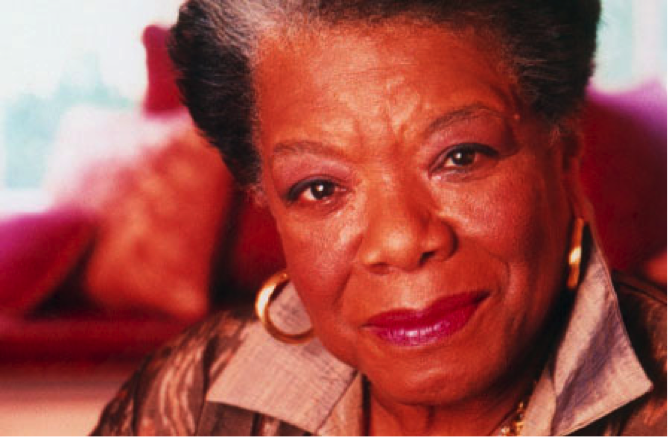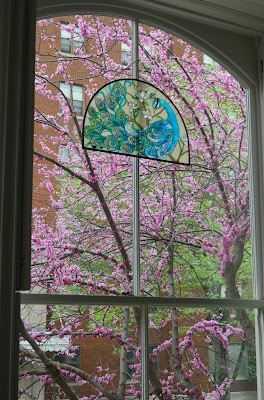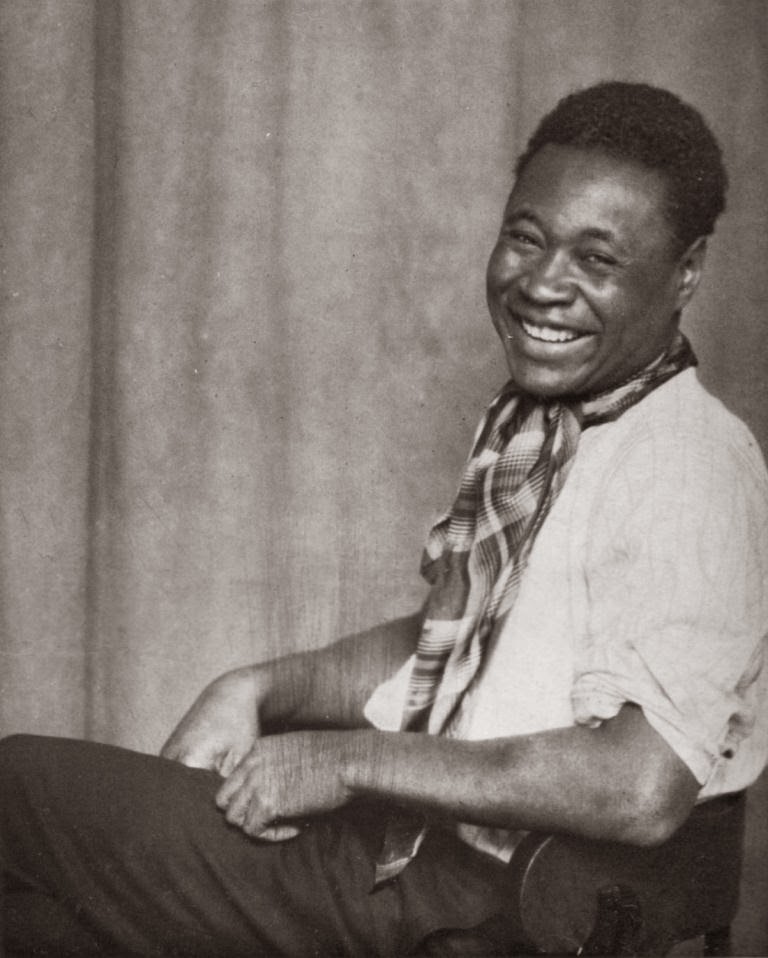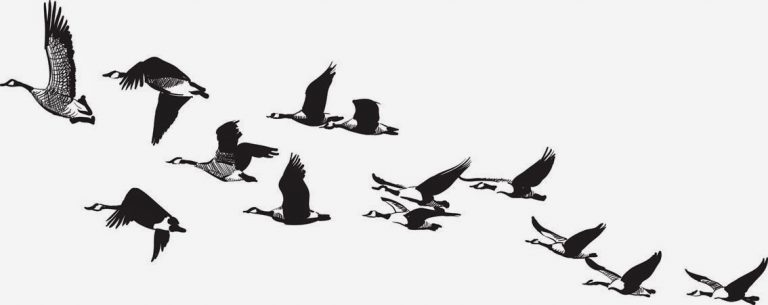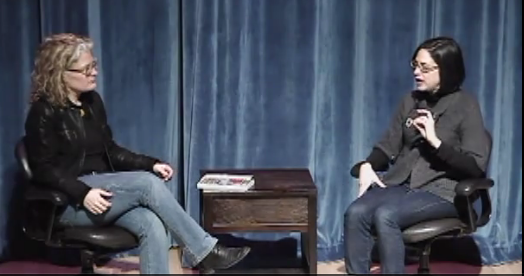Still I Rise
You may write me down in history
With your bitter, twisted lies,
You may trod me in the very dirt
But still, like dust, I’ll rise.
Does my sassiness upset you?
Why are you beset with gloom?
‘Cause I walk like I’ve got oil wells
Pumping in my living room.
Just like moons and like suns,
With the certainty of tides,
Just like hopes springing high,
Still I’ll rise.
Did you want to see me broken?
Bowed head and lowered eyes?
Shoulders falling down like teardrops,
Weakened by my soulful cries?
Does my haughtiness offend you?
Don’t you take it awful hard
‘Cause I laugh like I’ve got gold mines
Diggin’ in my own backyard.
You may shoot me with your words,
You may cut me with your eyes,
You may kill me with your hatefulness,
But still, like air, I’ll rise.
Does my sexiness upset you?
Does it come as a surprise
That I dance like I’ve got diamonds
At the meeting of my thighs?
Out of the huts of history’s shame
I rise
Up from a past that’s rooted in pain
I rise
I’m a black ocean, leaping and wide,
Welling and swelling I bear in the tide.
Leaving behind nights of terror and fear
I rise
Into a daybreak that’s wondrously clear
I rise
Bringing the gifts that my ancestors gave,
I am the dream and the hope of the slave.
I rise
I rise
I rise.
*Today we feature TWO introductions to the Poem of the Day!*
Maya Angelou’s “Still I Rise” poem is one of my favorite pieces. The poem speaks to overcoming oppression and resilience with a confident and sassy tone. I chose this poem because I admire the speaker’s confidence throughout it with her rhetorical questions (“Does my sassiness upset you?”), her bold and direct references, and just how clear it is to the speaker and the reader that the oppressors can’t hold her back. She directly references the oppressors, calling them out on their “bitter, twisted lies,” amongst other wrongdoings, and using their wealth to mock them.
Angelou also has vivid images throughout the poem. One that stands out the most is “I’m a black ocean, leaping and wide / Welling and swelling I bear in the tide.” Oceans are seen as free, lasting forever, and she shows that regardless of what oppression she experienced (“shoot me with your words,” “cut me with your eyes,” “kill me with your hatefulness”) she still rises, she’s still here, and she perseveres.
“Still I Rise” directly addresses the oppression of African Americans throughout history, and the speaker even refers to herself as “the hope of the slave.” The poem serves as a tribute to the African American race for experiencing the worst circumstances—slavery, discrimination, segregation, and more—and still persevering, serving as an inspiration and instilling confidence in African Americans.
She also addresses women’s issues in the poem and boldly states, “Does my sexiness upset you? / Does it come as a surprise / That I dance like I’ve got diamonds / At the meeting of my thighs?” This stanza exudes confidence, with her bluntly mentioning the diamonds between her thighs, which many might see as taboo. However, the poem does not speak to only African Americans or women, but to anyone who has been oppressed in some way. Her beautiful references to race and gender do not dominate the poem, making it easier for others to understand the meaning.
The final two stanzas not only have great imagery, but also have a great tempo for the reader to follow. Angelou shows what she’s rising from and then repeats “I rise.” For example, she writes, “Out of the huts of history’s shame / I rise / Up from a past that’s rooted in pain / I rise,” and then she creates the image of a black ocean “leaving behind nights of terror and fear.” As the poem takes a more positive perspective, Angelou ends with “I rise / I rise / I rise.” This repetition really helps the message resonate with the reader and gave me goose bumps when I read it.
–Ashlynn Profit
Ashlynn Profit is a senior from Dover, DE majoring in Communication and minoring in Journalism. She enjoys writing, service and all things Beyonce.
~
This poem was published in 1978 during one of the most productive periods in Angelou’s career. The poem’s theme focuses on how to rise above difficulty and discouragement. Listening to Angelou read her poetry touches me every time, but when I see her perform her poem I feel as if she is talking directly into my soul. She speaks in the present about having to overcome all of the hardships of her past and knowing how now she is a strong African American woman. She repeats “I rise” numerous times in the poem to show her ability to overcome oppression by staying prideful and having confidence.
Angelou paints powerful images in her readers’ minds based on metaphors such as “Shoulders falling down like teardrops / Weakened by my soulful cries” and “‘Cause I laugh like I’ve got gold mines / Diggin’ in my own back yard.” The way she uses tears and soulful cries immediately makes me think on sadness. She doesn’t deliberately say she is crying and hurt but through her metaphors and similes I get a clear association with sorrow.
The main symbol in the poem is the continuous rising above all those dreadful moments. Angelou, from what I see, was once on the ground and struggled getting up because of the negativity keeping her grounded. Later she realized that she had to pick herself, she had to believe in herself. She is confident and she does have pride, and with that image in her head she was able to rise.
I will always have a strong connection to this poem because, like Angelou, as an African American woman I struggle on a daily basis with negativity surrounding me but I do not stay down. I repeat to myself every day, “You may write me down in history / With your bitter, twisted lies, You may trod me in the very dirt / But still, like dust, I’ll rise.”
Maya Angelou has taught me to not hold back my words when writing because when others read my work they might also by enlightened. Angelou did it all as a poet, civil rights activist, dancer, author, and actress, and she gives me the drive to not only become a journalist but to pursue all my dreams to their fullest extent.
–Nana Agyemang
Nana is currently a sophomore in the School of Media and Public Affairs at GW. Although she aspires to be a TV broadcast journalist, her real dreams lie in her love for poetry. She enjoys writing to music by artists such as Toro Y Moi and Lauryn Hill because they allow her to dig into her deeper thoughts and take her into another place.
